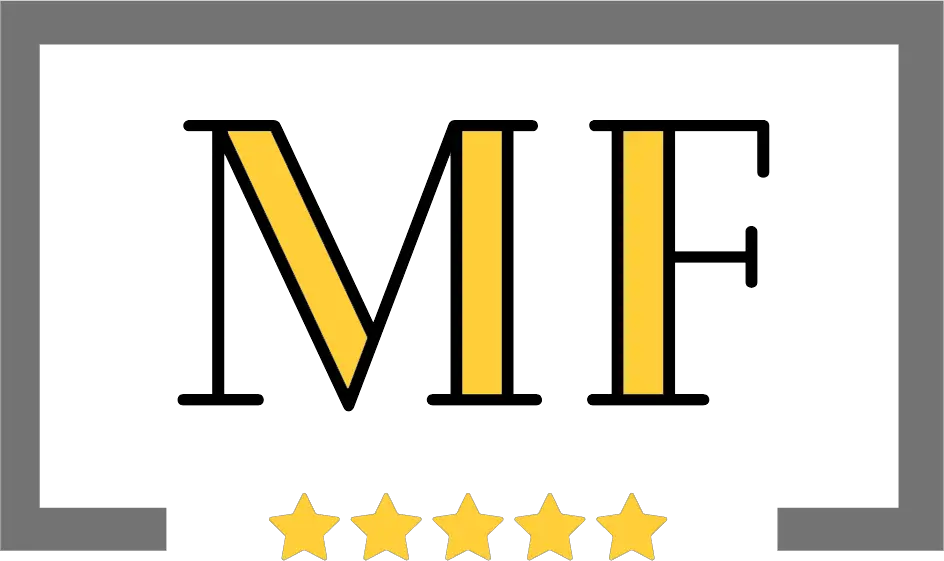Details
Introduction to Health Insurance Quotes
Health insurance quotes are preliminary estimates of the premiums you’ll need to pay for a specific health insurance plan. These quotes provide a snapshot of the costs and benefits associated with various insurance options, enabling individuals to compare and select the most suitable health coverage for their needs.
Obtaining a health insurance quote typically involves providing certain personal information. This may include your age, gender, medical history, and lifestyle habits, as well as details about your dependents if you have any. Additionally, the type of coverage you seek, such as individual, family, or employer-sponsored plans, will influence the quotes you receive.
Health insurance quotes are essential tools for making informed decisions about health coverage. By comparing quotes from different insurers, you can evaluate the cost-effectiveness of each plan and understand the range of benefits offered. This process helps individuals and families identify plans that not only fit their budget but also provide the necessary coverage for their healthcare needs.
The relevance of health insurance quotes extends beyond mere cost comparison. They offer insight into the specifics of each plan, including deductibles, co-payments, coverage limits, and network providers. This detailed information assists in assessing the overall value of a plan and ensuring that it aligns with your healthcare requirements.
In summary, health insurance quotes are vital for anyone seeking to navigate the complex landscape of health coverage. By providing a clear and concise picture of various insurance options, quotes empower individuals to make well-informed choices about their healthcare, ensuring that they select plans that offer both financial and medical security.
Types of Health Insurance Plans
When navigating the realm of health insurance, understanding the various types of plans available is crucial. The most common types of health insurance plans include Health Maintenance Organizations (HMOs), Preferred Provider Organizations (PPOs), Exclusive Provider Organizations (EPOs), and Point of Service (POS) plans. Each type has distinct features and benefits, as well as potential drawbacks, which can significantly impact the health insurance quotes you receive.
HMOs are known for their affordability and emphasis on preventive care. They typically require members to choose a primary care physician (PCP) who coordinates all healthcare services and provides referrals to specialists within the HMO network. While HMOs often have lower premiums and out-of-pocket costs, their major drawback is the limited network of providers, which can restrict your choice of doctors and hospitals.
PPOs offer greater flexibility compared to HMOs, allowing members to see any healthcare provider without a referral. PPOs have a broader network, and while you can see out-of-network providers, it usually comes at a higher cost. This plan type generally has higher premiums and out-of-pocket expenses compared to HMOs, but the trade-off is the increased flexibility in choosing healthcare providers.
EPOs combine elements of both HMOs and PPOs. Like HMOs, EPOs require members to use a network of doctors and hospitals, but they do not require referrals to see specialists. The key advantage of EPOs is the balance between cost and provider choice, offering lower premiums than PPOs while still providing some flexibility. However, out-of-network care is typically not covered, except in emergencies.
POS plans are a hybrid of HMOs and PPOs. They require members to select a PCP and obtain referrals for specialist care, similar to HMOs, but they also offer some out-of-network coverage like PPOs. POS plans tend to have higher premiums and out-of-pocket costs than HMOs, but they provide more provider options.
When choosing a health insurance plan, consider how the plan type aligns with your healthcare needs and preferences. Evaluate the balance between cost, flexibility, and network restrictions to determine the best option for you. Understanding these different types of health insurance plans will help you make an informed decision and navigate the quotes you receive effectively.
Factors Influencing Health Insurance Quotes
When assessing health insurance quotes, several key factors come into play, each contributing to the overall cost of premiums. Understanding these elements can help individuals make informed decisions when selecting a health insurance plan.
Age is a significant determinant in calculating health insurance premiums. Generally, older individuals face higher premiums due to increased health risks. Insurers typically use age brackets to determine the cost, with premiums escalating as one moves into higher age categories.
Location also plays a crucial role. Health insurance quotes can vary significantly based on the geographic region due to differences in healthcare costs, state regulations, and the availability of medical services. Urban areas, for instance, may have higher premiums compared to rural areas due to the higher cost of living and medical services.
Tobacco use is another critical factor. Smokers generally pay higher premiums than non-smokers due to the increased risk of health issues associated with tobacco use. Insurers often categorize tobacco users separately and may impose a tobacco surcharge, which can substantially increase the cost of health insurance.
The plan category chosen—bronze, silver, gold, or platinum—directly influences the premium cost. Bronze plans typically have lower premiums but higher out-of-pocket costs, while platinum plans offer higher premiums with lower out-of-pocket costs. The choice of plan category depends on an individual’s healthcare needs and financial situation.
The level of coverage provided by the health insurance plan is another determining factor. Plans with broader coverage, including a wider range of services and lower deductibles, tend to have higher premiums. Conversely, plans with limited coverage and higher deductibles usually come with lower premiums.
Pre-existing conditions can also impact health insurance quotes, although the extent varies based on regulations and the specific policies of insurance providers. While some insurers may not consider pre-existing conditions due to regulatory protections, others may adjust premiums based on the perceived risk.
Family size is another important consideration. Health insurance quotes for family plans are generally higher than individual plans, as they must cover multiple individuals. The cost will vary depending on the number of dependents and their specific health needs.
Insurers use a combination of these factors to assess risk and calculate premiums. By evaluating an individual’s age, location, tobacco use, plan category, coverage level, pre-existing conditions, and family size, insurers can provide a tailored health insurance quote that reflects the anticipated costs and risks associated with providing coverage.
How to Obtain Health Insurance Quotes
Obtaining health insurance quotes is a crucial step in selecting the right policy for your needs. There are several methods to gather these quotes, each with its own set of steps and requirements. This section will walk you through the process of obtaining health insurance quotes via online quote tools, direct contact with insurance companies, and through insurance brokers.
One of the most convenient methods is using online quote tools. These tools are available on many insurance company websites and comparison platforms. To get started, you will need to provide basic information such as your age, gender, location, and any pre-existing medical conditions. This data helps the tool generate a tailored quote based on your personal health profile. It’s important to be thorough and honest with the information provided to ensure the quotes are accurate.
Another effective method is directly contacting insurance companies. This can be done via phone calls, emails, or visiting their offices. When reaching out, be prepared to provide the same information as you would for online tools. Additionally, have a list of questions ready, such as details about coverage limits, exclusions, and premium costs. This direct communication can often lead to more personalized service and sometimes even exclusive offers that may not be available online.
Utilizing insurance brokers is also a viable approach. Brokers have in-depth knowledge of the insurance market and can offer multiple quotes from different providers, helping you compare and choose the best option. They act as intermediaries between you and the insurance companies, often simplifying the process and saving you time. When working with a broker, ensure you disclose all necessary information and specify your coverage needs clearly.
To ensure you receive accurate and comprehensive health insurance quotes, always double-check the details you provide and ask for clarification on any terms or conditions you do not understand. By following these steps, you can efficiently gather the necessary information to make an informed decision about your health insurance coverage.
Comparing Health Insurance Quotes
When navigating the complex landscape of health insurance, comparing health insurance quotes effectively is paramount. By understanding the essential components such as premiums, deductibles, out-of-pocket maximums, copayments, and coverage limits, individuals can make informed decisions that best suit their healthcare needs and financial situation.
Firstly, the premium is the amount paid periodically to the insurance company to keep the policy active. While a lower premium might seem appealing, it’s essential to balance it against other costs. Deductibles, the amount paid out-of-pocket before the insurance starts covering expenses, are a critical factor. A plan with a lower premium might have a higher deductible, potentially leading to higher overall costs depending on healthcare usage.
Out-of-pocket maximums represent the ceiling on what an insured person would have to pay in a year, encompassing deductibles, copayments, and coinsurance. Plans with lower out-of-pocket maximums can offer financial protection against catastrophic health expenses. Copayments, the fixed amount paid for specific services, also play a role in overall affordability. Each of these elements must be scrutinized to understand the true cost implications of a health insurance plan.
Beyond cost considerations, evaluating the quality of the plans is equally crucial. Network size, or the range of doctors and hospitals included in the insurance plan, affects the accessibility and convenience of healthcare services. A broader network offers more choices but could come at a higher cost. Customer service quality is another significant factor; prompt and effective support can make a substantial difference in managing healthcare needs. Additional benefits, such as wellness programs or telemedicine services, can also enhance the value of a health insurance plan.
To aid in the comparison process, various tools and resources are available. Online comparison platforms allow users to input their preferences and receive tailored health insurance quotes. Consulting with insurance brokers or using government resources like the Health Insurance Marketplace can also provide valuable insights. By leveraging these tools, individuals can navigate the comparison process with greater ease and confidence.
Common Pitfalls and Mistakes
When obtaining and comparing health insurance quotes, individuals often make several common mistakes that can lead to inadequate coverage and unexpected costs. One frequent error is overlooking critical plan details. While the premium is a significant factor, it’s essential to understand elements such as deductibles, co-pays, out-of-pocket maximums, and coverage limits. Focusing solely on the monthly premium without considering these factors can result in selecting a plan that may not meet your healthcare needs or financial situation.
Another common mistake is failing to account for the total costs associated with a health insurance plan. Beyond the premium, it’s crucial to consider the cumulative expenses, including deductibles, co-pays, and co-insurance. For instance, a plan with a lower premium but a high deductible might cost more in the long run if you require frequent medical services. Evaluating the total cost of care allows for a more comprehensive comparison of health insurance options, ensuring that you choose a plan that balances both affordability and coverage.
Additionally, not verifying provider networks is a significant mistake many individuals make. Health insurance plans often have specific networks of doctors, hospitals, and other healthcare providers. Using out-of-network services can substantially increase your medical costs. Therefore, it’s vital to check whether your preferred healthcare providers are included in the plan’s network. This ensures that you can continue receiving care from your trusted providers without incurring extra charges.
To avoid these pitfalls, take the time to thoroughly review each health insurance quote. Compare all aspects of the plans, not just the premiums. Make use of available resources, such as plan brochures and online comparison tools, to gather detailed information. Additionally, consult with a healthcare insurance advisor if needed, to ensure you understand the nuances of each plan. By taking these steps, you can make a well-informed decision and choose a health insurance plan that best meets your needs.
Tips for Lowering Health Insurance Costs
Health insurance is a significant expense for many individuals and families. However, there are several strategies to help reduce these costs and make health coverage more affordable. One effective method is selecting a plan with higher deductibles. Higher deductibles generally result in lower monthly premiums, making it a cost-effective choice for those who do not anticipate frequent medical visits.
Another valuable tool is the Health Savings Account (HSA), which allows individuals to save pre-tax money for medical expenses. Contributions to an HSA can lower taxable income, offering both immediate and long-term financial benefits. Funds in an HSA can be used to pay for a wide range of healthcare services, from routine check-ups to specialized treatments.
Preventive care services are another key to lowering health insurance costs. Many insurance plans cover preventive services, such as vaccinations, screenings, and annual check-ups, at no additional cost to the policyholder. By taking advantage of these services, individuals can catch potential health issues early, reducing the need for more costly treatments down the line.
Healthy living is also crucial in controlling insurance premiums. Insurers often offer lower rates to individuals who maintain a healthy lifestyle. This includes not smoking, maintaining a healthy weight, and engaging in regular physical activity. These habits not only improve overall health but also demonstrate to insurers that the policyholder is less likely to require expensive medical care.
Potential discounts and subsidies can further reduce health insurance costs. Many employers offer group health insurance plans with discounted rates. Additionally, government programs and subsidies are available for those who qualify, based on income and other factors. Exploring these options can provide significant savings on health insurance premiums.
By strategically selecting higher deductibles, utilizing HSAs, leveraging preventive care, adopting healthy living habits, and seeking out applicable discounts and subsidies, individuals can effectively manage and lower their health insurance costs.
Conclusion and Next Steps
Understanding health insurance quotes is an essential step in securing a plan that meets your unique healthcare needs. Throughout this comprehensive guide, we have explored the intricacies of health insurance quotes, including the factors that influence them, the importance of comparing different plans, and the key elements to consider when selecting a suitable policy. Taking the time to thoroughly research and compare quotes can make a significant difference in finding the most cost-effective and comprehensive health insurance plan.
As you move forward, it is crucial to utilize the information provided to make informed decisions. Start by obtaining quotes from multiple insurance providers to ensure you have a broad view of the available options. Pay close attention to the coverage details, premiums, deductibles, and out-of-pocket costs associated with each plan. Remember that a lower premium may not always mean better coverage, so consider your healthcare needs and financial situation carefully.
We encourage you to take the next step by actively exploring health insurance quotes. Utilize online tools and resources to compare different plans and providers. Many websites offer quote comparison services that can simplify this process. Additionally, consulting with a licensed insurance agent or broker can provide personalized assistance and help you navigate the complexities of health insurance.
For those seeking more in-depth knowledge, numerous resources are available to further your understanding. Government websites, healthcare advocacy groups, and financial planning organizations often provide valuable insights and educational materials on health insurance. Engaging with these resources can enhance your awareness and confidence in making the best choices for your health coverage.
In conclusion, obtaining and comparing health insurance quotes is a vital step towards securing the right coverage for you and your family. By dedicating time and effort to this process, you can ensure that you are well-prepared to make informed decisions that will protect your health and financial well-being.























There are no reviews yet.